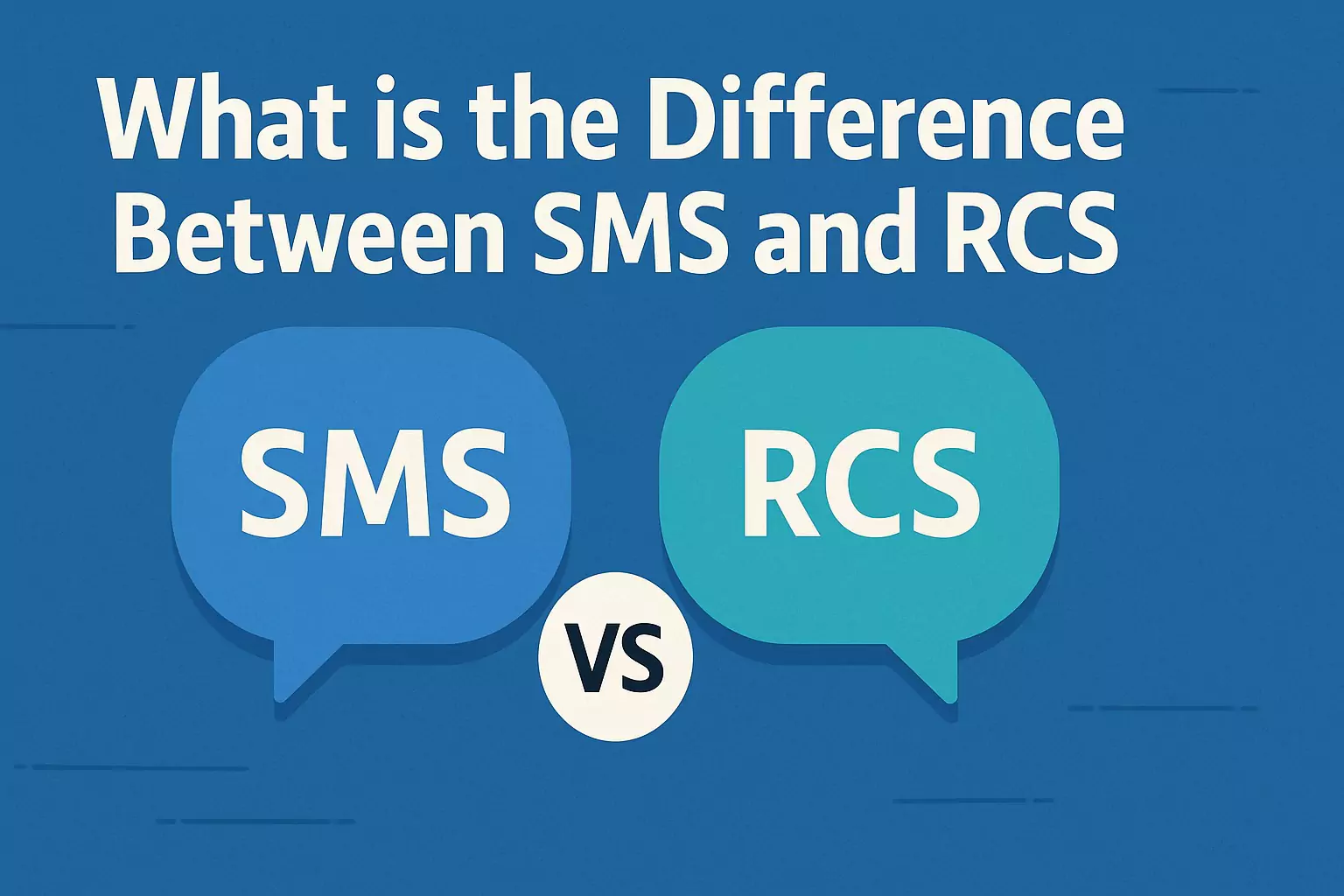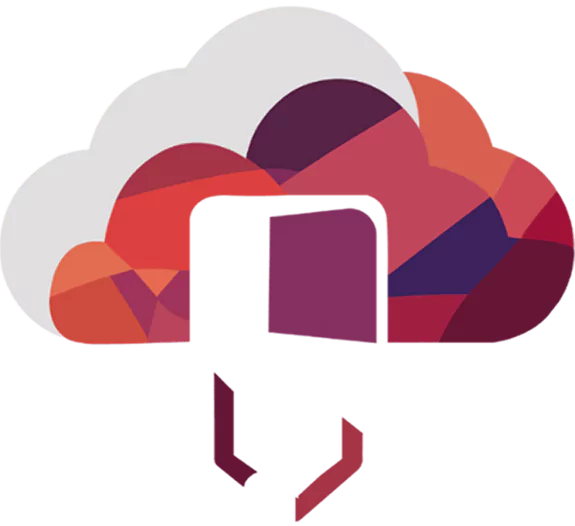
What is the Difference Between SMS and RCS?
You have been using SMS your whole life. It works on any phone and is quick and easy. Have you ever gotten a message with an image, buttons, read status, and typing features? It is not SMS; it is RCS. With evolution in mobile communication, businesses and consumers have now started to prefer RCS over the traditional SMS to get smarter messaging. In this blog, Cloud Gateway describes the main distinctions between SMS and RCS and assists you in comprehending how they both work and which of them is more useful in business communication.
What is SMS?
SMS is an abbreviation of Short Message Service. It is the original text messaging invention first offered in the early 1990s. SMS lets users only send messages that are text-based and up to 160 characters. Those are conveyed by the cellular system and do not need an online connection. SMS is still topical today in one-to-one communication, one time passwords, alerts and marketing. It is compatible with any mobile phone be it a keypad or smart phone.
Key Features of SMS:
- Text-only communication
- Max limit: 160 characters per message
- Does not demand internet
- Installable in any mobile phone
- No multimedia capability
What is RCS?
RCS is Rich Communication Services. It is the new system of upgraded SMS to provide more content and app-like messaging. RCS is image, video, and audio messaging; read receipts; share location; carousels; and interactive buttons—and all the rest like WhatsApp or iMessage—unlike SMS. RCS needs internet or mobile data and is only supported on smartphones with RCS-supporting messaging apps. Google Messages is the most popular RCS service on Android.
Key Features of RCS:
- Multimedia support (images, videos, GIFs, audio)
- Typing indicators and read receipts
- High character limits
- Location and file sharing
- Branded messaging for businesses
- Requires data/Wi-Fi and smartphone support
SMS vs. RCS: A Feature Comparison
Let’s look at a quick comparison to understand how SMS and RCS stack up against each other:
| Feature | SMS | RCS |
|---|---|---|
| Message Type | Text-only | Rich media (images, buttons, videos) |
| Character Limit | 160 characters | No strict limit |
| Internet Required | No | Yes |
| Delivery Reports | Basic | Advanced (with read receipts) |
| Typing Indicator | No | Yes |
| Group Messaging | Limited | Full-featured |
| Branding Options | No | Yes |
| Security | Basic encryption | End-to-end encryption (in some cases) |
| Availability | All mobile phones | Only smartphones with RCS support |
How RCS Improves Business Messaging
We enable businesses to reach out to customers better at Cloud Gateway. The RCS is a new channel to communicate with interactive and branded messages. RCS also gives businesses the opportunity to display products, add CTAs (Call-to-Actions), and receive immediate responses all in the same message thread as opposed to SMS, which is plain and static.
Here’s how RCS messaging benefits businesses:
- Branded Experience: It is possible to add a company name, logo and colour scheme.
- Higher Engagement: Rich media and carousels increase the click-through rates.
- Two-Way Communication: The customers have an opportunity to reply in the chat.
- Better Analytics: Get detailed reports on delivery, opens, clicks, and responses.
- Security and Trust: Verified sender IDs reduce chances of spam or fraud.
Levers whether you are in retail, travel, banking, or healthcare or/streaming—you can develop rich and dynamic conversations with your users.
Limitations of SMS
SMS, though has been reliable over the decades, has its shortcomings and it can be limited within the new Digital age:
- Multimedia content cannot be sent
- No communication except for Question-Answer
- No branding or verification options
- Messages can be divided into several fragments
- Lacks advanced delivery and engagement tracking
Nevertheless, SMS is handy when simplicity, speed and universal reach are the key factors. They are preferable to urgent messages, shortcodes, OTPs, etc. or areas with marginal access to the internet.
Is RCS the Future of Messaging?
Well, it does have its challenges, but with it. Not every device supports RCS, particularly iPhones. Apple, with its own system (iMessage) is not fully integrated RCS yet. In addition, RCS is incompatible with older software or applications on phones. The change is, however, already in progress
Big companies such as Adidas, Vodafone, and Subway have begun to apply RCS to their efforts to promote their products and to provide customer support. As adoption increases and the networks deploy it on a world-wide basis, RCS will become the new business messaging standard.
RCS Adoption in India
In India, RCS is still growing. Many users on Android have access to Google Messages with RCS enabled. Telecom providers like Jio, Airtel, and Vi are supporting it too. As more smartphones support RCS, Indian businesses can leverage it to create rich communication experiences. Cloud Gateway stays ahead in this evolution—helping Indian businesses explore RCS as a reliable alternative to SMS marketing.
Use Cases: SMS vs. RCS
Here’s a quick look at which use cases are ideal for SMS and which are better served by RCS:
Ideal for SMS:
- OTPs
- Alerts and reminders
- Emergency notifications
- Basic promotional messages
- Feature phone users
Ideal for RCS:
- Product showcases
- Travel booking confirmations with maps
- Event invitations with RSVP buttons
- Customer support chatbots
- Feedback and survey collection
Which One Should Your Business Use?
When your audience is diverse in terms of geographies and types of devices, a blend of the two is best. SMS makes sure of everyone getting your message. RCS does all this plus adds interactivity and brand engagement where available.
Cloud Gateway can assist you to combine the two in a hybrid communications approach Our platform identifies RCS enable users automatically, and delivers RCS messages to them. The rest get a standard SMS so that no one is left behind.
Why Choose Cloud Gateway?
We do not only provide messaging tools, but we offer smart messaging solutions at Cloud Gateway.
Here’s why brands trust us:
- Multi-channel Messaging: SMS, RCS, WhatsApp and others
- Automated Campaigns: The triggers, segments, and personalisation
- Scalable API Access: Easy integration with CRMs and apps
- Detailed Analytics: Real-time insights and delivery tracking
- 24/7 Support: Our team is always ready to assist you.
Cloud Gateway will assist you no matter whether you have a startup or a large enterprise to make the right decision regarding customer engagement.
Final Thoughts
SMS still remains valid because it is simple and far-reaching. However, RCS is the way ahead- cleverer, wealthier, more interactive. Coming to grips with the distinction between SMS and RCS will help your business make sound decisions in the messaging approach. Technology has changed and so should your method of communication.
Interested in enlisting RCS messaging as a technology solution? Become a partner of Cloud Gateway and take a step into a new era of mobile communication.
